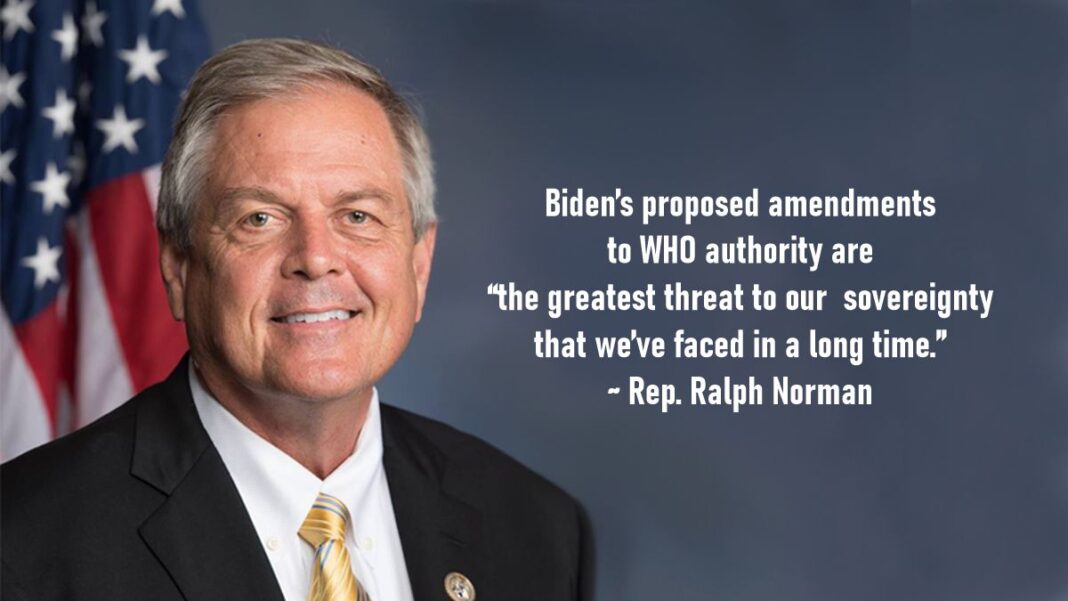
Rep. Ralph Norman (R-S.C.) told The Epoch Times on May 23 that President Joe Biden’s proposed amendments to the World Health Organization’s (WHO) authority are “the greatest threat to our sovereignty that we’ve faced in a long time.”
The South Carolina Republican said “for this administration to sell this country down the river like he’s doing to deal with somebody who is under the influence of China, who is a person who has not had the first inclination to investigate where the Coronavirus came from, to give him more authority? We’re going to ring the bells.”
The individual Norman was referencing is Tedros Adhanom Ghebreyesus, who has been WHO Director-General since 2017. Tedros is the former Minister of Foreign Affairs of Ethiopia.
As previously reported by The Epoch Times, Tedros would receive significant authority to act unilaterally if a package of Biden administration-proposed amendments to the United Nations International Health Regulations (IHR) are adopted. The IHR defines WHO’s regulatory powers regarding public health issues around the world.
Biden’s amendments are to be considered this week during the World Health Assembly Annual Conference in Geneva, Switzerland. The WHO is under the assembly. The United States provides more than $150 million in assessed contributions to fund WHO, and has given on average an additional $262 million in annual voluntary funding since 2012.
Under the proposed amendments, WHO would be empowered to declare a public health emergency in any country regardless of whether officials in the country concur with the declaration. The WHO Director-General would also be allowed to rely on evidence from sources other than those approved by the affected country as the basis of such a declaration.
The Biden WHO amendments are the latest step in the current president’s efforts to reintegrate the United States with WHO after his predecessor, President Donald Trump, slashed U.S. funding to the international health organization and then gave notice of U.S. withdrawal in 2020. Biden during his first week in the Oval Office repealed Trump’s withdrawal notice.
The amendments were drafted at the U.S. Department of Health and Human Services and circulated among WHO officials in January, but the proposals were not publicly discussed by federal officials until April.
Read Full Article on TheEpochTimes.com







